The Best TV Shows I Watched in 2022
View the rest of my favorites here.
ATLANTA
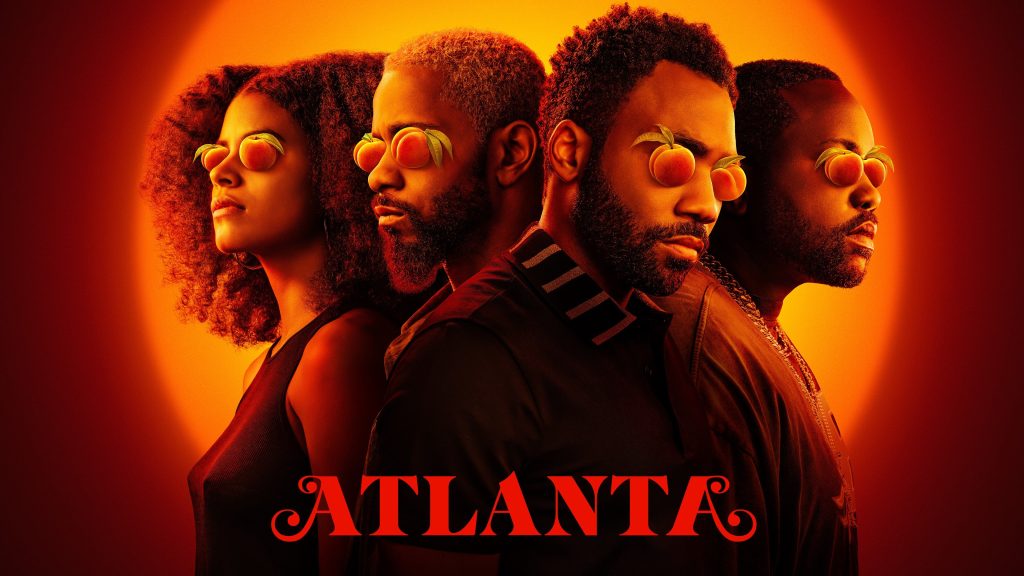
After a long, pandemic-imposed hiatus, FX graced us with not one but two seasons of Donald Glover’s as-yet magnum opus. In early seasons, Glover (his name hereafter also serving as a metonym for an extremely talented cast and crew) described his show as “Twin Peaks with rappers”. I think that description’s overstayed its welcome, but I have no choice to acknowledge that, without it, it seems impossible to find a similarly-succinct thesis for one of TV’s most powerful and irreverent players.
Every episode of Atlanta is an idea. There’s no filler, no redundant ligamentary tissue connecting the narrative’s stronger beats. Each entry means something. If the story Glover, Murai, et al come up with has room for its stars, perfect. If not? No problem. Of the twenty episodes that aired this year, a quarter of them feature little to no on-screen involvement from its main characters, making the show something of a pseudo-anthology. It’s better for it, leaving room for both social commentary and more focused character development where it matters.
The episodes that do feature Atlanta’s main players, Earn (Glover), Paper Boi (Bryan Tyree Henry), Darius (Lakeith Stanfield) and Van (Zazie Beetz) are more personal and often intimately character-driven. They’re still offbeat, surreal, and funny, but these final two seasons espouse a theme of growth that puts the real psyches of the characters on full display. Earlier seasons focused more on Paper Boi’s career trajectory and on his success as a rapper. In the final season especially, if not for the usage of recording studios as backdrops, it’s not difficult to forget what exactly Paper Boi does for a living. That’s not the part of his story that’s most interesting to him or to us. Similarly, Van’s disillusionment reaches new heights and metastasizes into a sort of existential manic episode. It almost takes watching her beat the life out of a man with a stale baguette for us to finally stop asking what she’s doing and start asking how she’s doing. Earn’s own growth provides the backbone of the show and Darius’s biggest move, letting us in, makes for one of Atlanta‘s best sequences.
Atlanta is and always was an excellent show. It carved an unfillable niche and I’m going to miss it very much.
CHERNOBYL
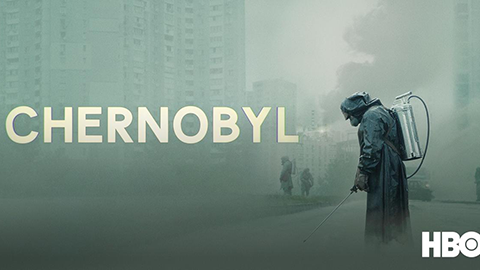
Chernobyl is a brutal and gripping miniseries. I think I kept its tension with me the whole of its original five-week run back in 2019. Three years later, it’s just as good. I’ve always found the idea of nuclear fallout uniquely off-putting. I don’t think many of us adore the idea of disintegration, but it’s hard to wrap your head around the mortal cruelty of this ultimate silent killer. Watching its effects, dramatized as they may be, as the lasting influence of the explosion assaults an innocent and unsuspecting public is heart-wrenching. Chernobyl succeeds, ultimately, as both a drama and a cautionary tale. Some sequences could easily pass for horror. It’s the sort of show that stayed with me for months, if not years.
It feels slightly disingenuous to take up too much space with a show I first watched three years ago, but I started these lists in 2020, meaning Chernobyl just barely missed the cutoff the first time around. In my mind, every show deserves its chance to make the list once. (Though even that is subject to change at any time; did you read that batshit screed I opened with this year?).
ATTACK ON TITAN
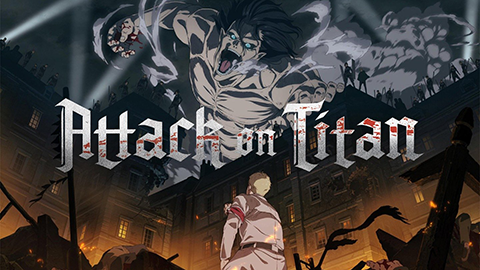
Did you know that anime can be cool? I didn’t, because I’m an elitist douche. I prefer to use phrases like “pseudo-anthology” and “intimately character-driven” over giving alternative animated media a chance. But each of us is tethered to this earthly realm by inherently human bonds, and sometimes all we want—all we need— is to watch a little man get cut out of a bigger man with a sword. To date, Attack on Titan remains my first and only experience with an authentic, Japanese anime series. Keep that in mind as I guarantee to you personally that, even with a pivot toward slightly on-the-nose allegory in the eleventh hour, this anime is the best of all the anime.
AVATAR: THE LAST AIRBENDER
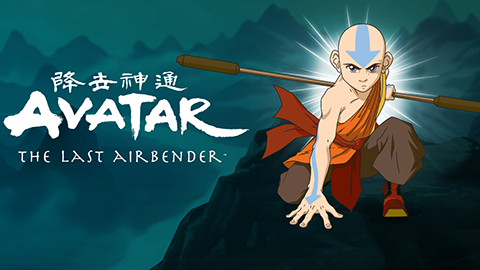
I watched the first episode of Avatar when I was ten. The following three seasons are some of the best child-friendly TV I’ve ever seen, episodes that would prove formative to my childhood. Or they would have, if I hadn’t waited until I was 27 to watch them. The world of Avatar is engrossing and unendingly inviting. In 22-minute increments this silly little kids’ show paints a more compelling picture of war than just about anything else I’ve adhered my eyes to. I guess War and Peace was just a big waste of time.
HOW TO WITH JOHN WILSON
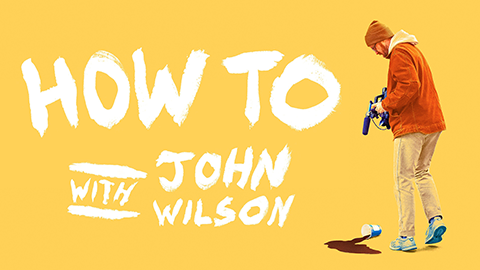
Adulthood is about acceptance. Childhood is a hallway of infinite doors, all of them wide open. Growing up is, in my own depressive interpretation, the act of watching them close one by one. At my age, I’ll never be a professional athlete. I’ll never be an astronaut. And I’ll never be as dedicated to any one skill as John Wilson is to the collection of B-reel footage.
How To is a show that caught me in an endless cycle of being caught off guard. Each episode is a garden path that starts somewhere innocuous, meanders through the bizarre, and ends somewhere heartfelt. There’s a lot of unexpected emotion packed into this show. There’s also an extensive demonstrative interview with a guy claiming he’s invented the premiere device for foreskin reclamation. So. I don’t know. No one told me that before I started watching. I think you should watch it anyway. At worst, you lose your lunch. At best, you regain your foreskin.
HOUSE OF THE DRAGON
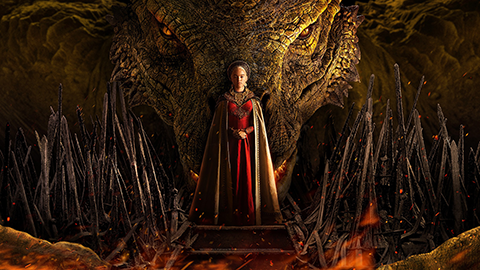
I thought there was no way. I thought it was impossible. Everyone and their incestuous brother-uncle wanted a piece of Game of Thrones‘s success after it ended in 2019. HBO must have been sweat-salivating for their chance at retaining the thickest Sunday night audience in TV just as much as its competitors were at the thought of stealing it away. But the boys at HBO had something their adversaries didn’t: the potent upper hand of being the home of Game of Thrones. This would have been their fight to lose, if not for an inconvenient truth: that show’s ending was dragon dook.
I didn’t believe in House of the Dragon. I didn’t want it to fail, like the legion of terminally-online insufferables whose penile neurons fire only for the disappointment of happy people, but I didn’t have faith. Game of Thrones was an excellent show until its showrunners ran out of source material to divine from. A show from the same world but charged with telling a different story would have even less to begin with. It came more doomed than the Valyrian Freehold.
But House of the Dragon is good. It’s really good. Its characters are intriguing, their relationships dynamic. The world is deep, the dragons are scary. But all of this pales before the show’s greatest accomplishment: the normalization of hot incest. Remember when Game of Thrones’s incest was weird? Remember when Viserys (Daenerys’s brother, the one with an intact face) hit on his sister in the pilot and you felt uncomfy? Now it’s cool. Now we like it. For a show, that’s a major accomplishment. What’s coming next? We probably won’t know until 2024, but bestiality fans should keep to the edges of their seats.
THE REHEARSAL
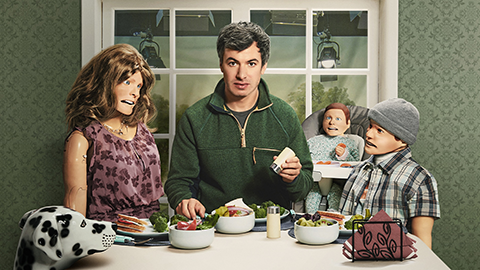
Maybe the right message to take from 2022 is that I’m too much of a pessimist and I should stop being so silly. Could House of the Dragon hold a candle to its predecessor? Impossible. Could The Rehearsal be anywhere near as good as Nathan for You? Expectation is the seed of disappointment.
It takes a certain kind of person to step away from a show I probably would have watched for twelve seasons. In its day, Nathan for You was some of the best, if not the best, comedy available on TV. Moreover, its form seemed infinitely replicable. So when its creator and star stepped away to pursue new projects, I had no idea what to expect. Were we in for more Nathan for You or for something entirely different?
The Rehearsal feels like Nathan for You evolved, an adapted version featuring the same terminally-awkward character but armed with a new and heightened concept. And though that concept takes some hits from the ongoing pandemic, Fielder and crew manage to shape it into something just as funny and beautiful. Come for Fielder, leave with a meaningful reevaluation of your own anxiety.
OVER THE GARDEN WALL
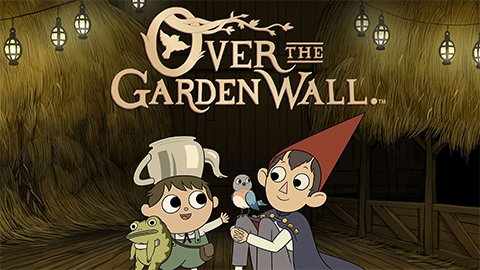
This short collection of Cartoon Network minisodes is fast becoming an autumn classic in my family. The story of two half-brothers lost in a folksy fantasy environment that draws from sources like the golden age of animation and pagan folklore. There’s a lot that’s special about Over the Garden Wall, but I think my favorite part of it all is its depiction of its child protagonists. Wirt, the elder of the two brothers, is a teenager racked with anxiety and endlessly concerned with how he’s perceived by others. He’s accompanied, to his frequent annoyance, by his half-brother Greg, whose own childhood is characterized by naïvete and subversion of expectation. Wirt’s the pessimist, Greg’s the optimist. Wirt is melancholy, Greg is insouciant.
Each entry in the miniseries is incredibly brief eleven minutes, each a mostly self-contained story with a unique theme and warm little message. It’s a story about brotherhood, childhood, adventure, and friendship, and it’s the perfect accompaniment to the height of Autumn. Ain’t it just the way?
BARRY
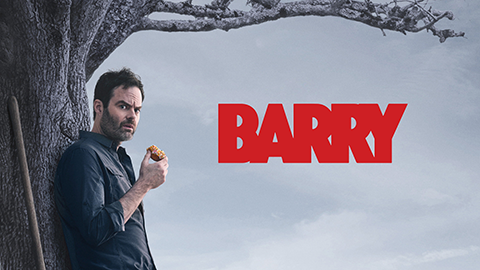
If you haven’t watched Barry yet, you’ve probably heard the same synopsis over and over: it’s a show about a hitman who decides to become an actor. It’s an accurate description of the concept, but the show itself is so, so much more than that. Barry is the best melding of comedy and drama I’ve ever seen on TV. Other shows that pride themselves on that same mixture, like Breaking Bad and Better Call Saul do well, but they almost always tilt overwhelmingly toward one of the two identities. Better Call Saul is funny, but it’s not a comedy. Barry, on the other hand, is equal parts comic romp and brutal tension. Most episodes are funny. Some, especially those nearer to the recent Season 3 finale, aren’t funny at all. There’s an impressive code switching built into Barry. Season 2’s junior black belt fight scene and subsequent chase were all the way ridiculous; Noho Hank, as a character, is a cartoon (a cartoon who forever changed how I pronounce “Barry”). But then, when the tension rises, when lives are at stake, I’m fully invested. I’m worried. I’m stressed. That’s impressive enough on its own, but what makes Barry one of the best shows I’ve ever seen is the speed and efficiency with which it vacillates between its two modes. I need you to understand that this isn’t simply a show that’s sometimes very funny and sometimes very tense. It’s almost always one or the other. Think of it as a really good drama that spliced out all of the calm-before-the-storm moments and basic exposition and replaced them with the highlights of a comedy. This best of both worlds approach has to be hard to do; crafting a legitimate sense of empathy for outlandishly goofy characters is beyond impressive. I guess that’s the burden of writing a show about a hitman trying to become an actor.
RAISIN D’OR: BETTER CALL SAUL
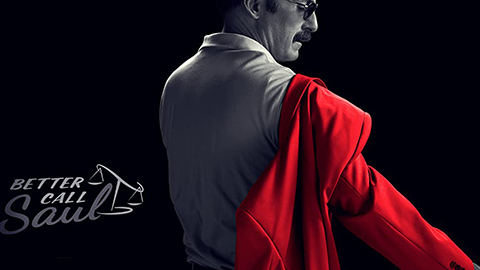
It’s showtime.
We live in a time of excellent sequels, prequels and successor shows. Chief among them is (now, unfortunately, was) Better Call Saul. I wrote about this show for the first Raisins in 2020. At that time, Better Call Saul was, in my opinion, just about perfect. In its final season, creator Vince Gilligan and crew turned everything up as high as they could. The whole thing was a ride that gave meaning to my Mondays. At least two episodes left me rattled well into the next week. Breaking Bad was, in my common opinion, one of the best shows of all time. By the time shooting began on Better Call Saul, Gilligan had assembled a seasoned team, many of whom seem to have returned for their love of the story just as much as their appreciation for AMC’s money (between this and the end of The Walking Dead, I have to imagine the channel’s executives are laying cash on Gilligan’s doorstep in an attempt to get him to sign on to a an infinite line of prequels and sequels starting with Gus and ending with No Doze’s ghost).
Better Call Saul takes a character created for comic relief and makes him into a tragic hero, a dramatic figure we can’t help but identify with. His story echoes Walter White’s in more ways than one, but the true beauty of Better Call Saul are the differences, how he finds his way into and navigates his way through Albuquerque’s criminal underground. Better Call Saul is a cinematic treasure worthy of its acclaim and worthier as a successor to Breaking Bad. If you enjoyed that show, not following it up with this one is a crime punishable by death. Luckily, you can always call Saul.
Honorable Mentions
- Abbott Elementary
- The Dropout
- QI
- Taskmaster
- Taskmaster New Zealand
- The Legend of Korra